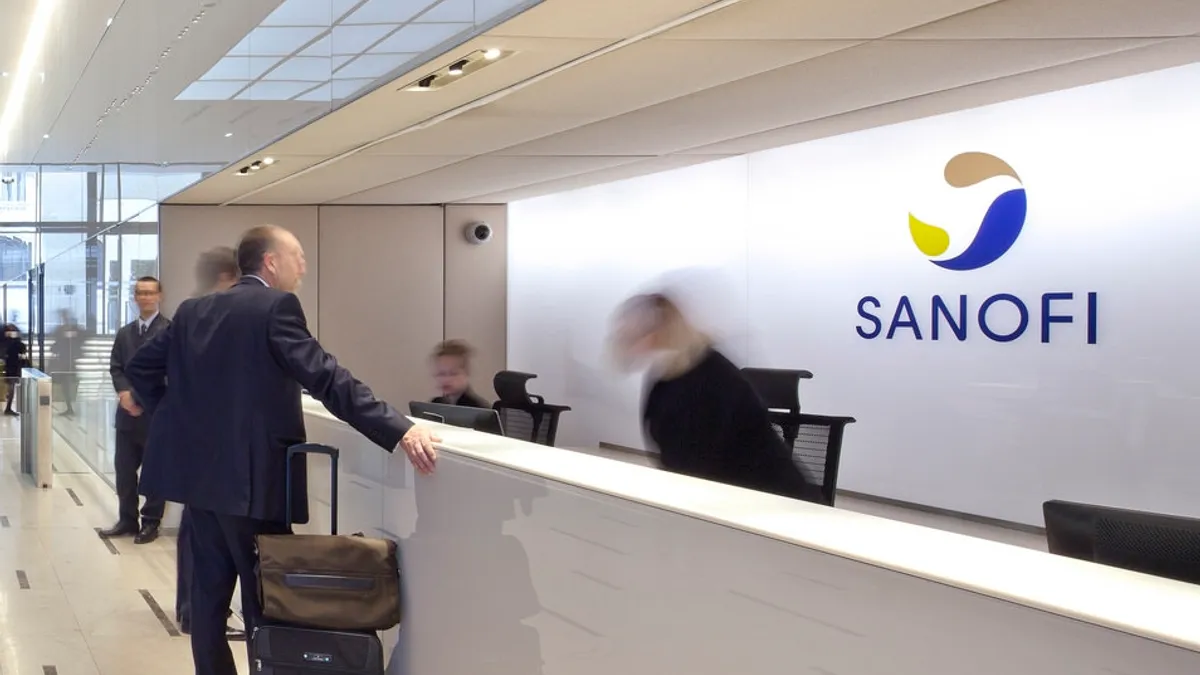Dive Brief:
-
Sanofi Ventures has led a $17 million investment in prescription digital medicine startup Click Therapeutics.
-
Click is part of a growing group of companies developing prescription software-as-a-medical device products designed to enhance or replace conventional medicines.
-
The financing round equips Click to progress a pipeline of digital therapeutics targeting major depressive disorder, acute coronary syndrome and other diseases toward approval.
Dive Insight:
Digital therapeutics have started to come of age over the past 12 months. The idea of using software to drive behavioral or lifestyle changes and thereby improve health outcomes has been around for more than five years but the technology has been largely on fringes of the industry. That is changing. In past year, a series of events have pushed digital therapeutics into the mainstream.
Over that period, Pear Therapeutics won FDA approval for its mobile app to help treat substance use disorders, raised $50 million and landed development and commercialization deals with Novartis and its Sandoz subsidiary. Elsewhere, Akili Interactive posted positive pivotal clinical trial data on its video game-like digital treatment for ADHD, setting it up to raise $55 million and file for FDA approval. Now, the venture capital arm of Sanofi has moved into the sector by investing in Click.
Click’s path to the $17 million investment reflects the evolution of the wider digital therapeutic field. In its early years, Click created a smoking-cessation app, Clickotine, that provides craving strategies, live coaching and other forms of support in line with U.S. clinical practice guidelines. More than one-third of the 416 people in a single-arm Clickotine study had quit smoking six months after starting to use the app.
Clickotine is a non-prescription app that anyone can download from Apple and Google’s app stores. As Pear made its way toward an FDA approval, Click branched out into prescription-only apps in collaboration with healthcare software company Magellan Health. The collaborators are working to develop and win FDA approval for apps targeting a range of major diseases.
Click’s digital cognitive-emotional training treatment for major depressive disorder is among its most advanced programs. A randomized, 51-patient clinical trial associated the digital therapeutic with a statistically-significant improvement in depression symptom severity and a study completion rate of 71%.
More than one-third of participants who received the digital therapeutic experienced a 50% or greater reduction in symptoms after six weeks, compared to 17% of patients who were assigned to an active control arm involving computerized working memory training. Click also has brain imaging data suggesting the digital therapeutic causes changes in the short-term plasticity of neural networks that are involved in information processing.
The combination of data on efficacy, engagement and a proposed mechanism of action (MOA) persuaded Sanofi Ventures that Click’s depression intervention is a compelling digital therapeutic. Sanofi Ventures thinks the data will be persuasive enough to convince payers and quash concerns that reimbursement challenges will throttle digital therapeutics.
“It will be difficult for payers to outright reject reimbursement once a therapeutic presents a strong efficacy, engagement, MOA and cost-effectiveness argument,” Ruchita Sinha, senior director of investments at Sanofi Ventures, wrote in a post on LinkedIn. “Biopharma and payers have a long history of establishing reimbursement models for disruptive therapies whether it’s a new modality or a new disease model. This should be no different.”
Click is yet to file for approval of a digital therapeutic but now has the financial means to move its pipeline programs forward. The most advanced prescription digital therapeutics in Click’s pipeline target insomnia and major depressive disorder.










